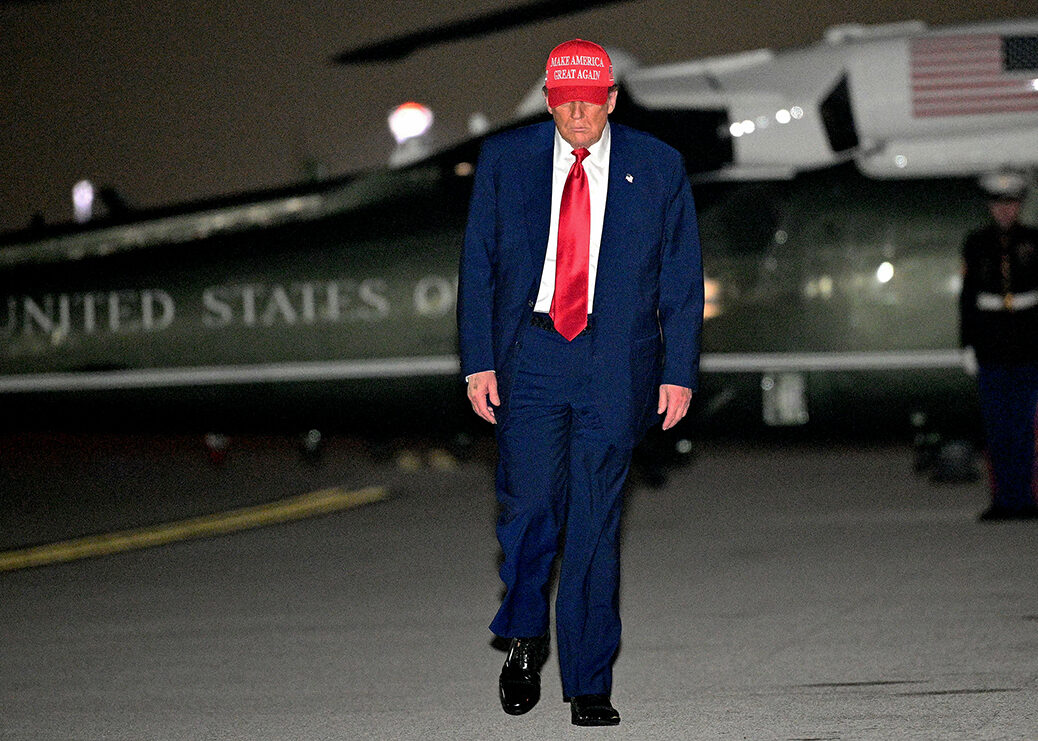
At what point does a legislator – particularly one of the same political party as the government – have to intervene and restrict the powers of the government over trade negotiations?
This is the question that Republican members of Congress should currently be asking themselves. Donald Trump may have partially retreated on his “Liberation Day” announcements, but he has still implemented a dramatic increase in tariffs and is doing much damage to the global and US economies. Even if Trump retreats further or succeeds in agreeing bilateral trade deals with some countries, the uncertainty created by his erratic policy approach is destroying business confidence. This is not a good place to be.
Congressional Republicans (many of whom, no doubt, are New Statesman subscribers) can do something about it. The International Emergency Economic Powers Act 1977 and the National Emergencies Act 1976 allow the president to declare a national emergency which, in turn, permits him to impose tariffs unilaterally. But both of these laws state that Congress can pass a joint resolution ending any national emergency, and with that the presidential authority to impose tariffs.
To work, these resolutions would require two-thirds majorities in both the House and the Senate. In other words, large numbers of Republicans (at least 20 of the 53 Republican senators and 82 of the 220 Republican representatives) would need to support it. Alternatively, new legislation could be passed but, given the inevitable use of a presidential veto, two-thirds majorities would also be required.
Rebellions of this scale are highly unlikely. There is evident disquiet within Congress about Trump’s trade policies but Maga’s hold on the Republican Party is surely too tight for any such move. Yet the point is that it is theoretically possible for Congress to end the tariffs and the uncertainty if only Republicans had the courage to act. And by failing to do so, those Republicans are culpable for everything that flows from Trump’s policies. Higher prices in US shops, greater business uncertainty, lower investment, higher debt interest costs for the US government, the weakened dollar, the decline of US geopolitical influence – it is on them, just as it is on their president.
In this grim situation, there are echoes of the UK parliament’s position in September 2019. On that occasion, the government – led by a blond-haired populist – was seeking to get its way in trade negotiations by threatening to pursue an aggressively isolationist approach. There was much bluster about this negotiation strategy working, with little appreciation that the other side had their own interests to maintain. We were heading for a no-deal Brexit.
It might have been a bluff, but MPs could not be certain. What one could be certain about is that if the government delivered on its threats, the adverse consequences for the British people would have been immense. There would have been shortages in the shops, disrupted medical supplies and turmoil in the currency, equity and bond markets. Our international reputation would have been entirely trashed.
On that occasion, MPs did take action. An Act of Parliament was passed that meant the imminent threat of a no-deal Brexit was off the table, the UK government was forced to take a more realistic approach to the negotiations and a calamity was averted.
Having had some involvement in this episode, I was well aware of the arguments against parliamentary intervention at that time. They are, to a remarkable extent, the arguments that are used today as to why Congress should not limit the president’s powers.
First, that the government needs the leverage created by making big threats. This is a stronger argument for the US today than for the UK in 2019 (no deal would have been so obviously devastating to the UK that the EU was confident we would have to climb down very quickly). The US does have leverage, but the concern here is that Trump shows no sign of being able to use it sensibly. There is no coherent trade strategy in place. Is it about raising revenue, reshoring manufacturing or forcing other countries to lower their trade barriers? All we know is that everything Trump says on the topic is ignorant and muddle-headed.
Second, that intervening is “thwarting democracy”. This was nonsense in 2019 when Leavers claimed that a narrow referendum result justified a form of Brexit never set out to the British people during the referendum campaign. Now it is argued that since Trump promised tariffs in his election campaign, Congress must give way. But that is not how the US constitution works. Just as a referendum does not absolve British parliamentarians from using their judgement, a presidential election does not absolve Congress from doing its duties. For constitutional conservatives, in particular, so much power in the hands of one person is an affront to the intentions of the founding fathers.
The third argument is more personal. Intervening will come at a political cost. It will upset your party leader and your party base. It may even be career-ending.
Decent people will reach different conclusions about when to take a stand but allowing a catastrophe to proceed cannot be easy to live with. Those of us who, as Conservative MPs, intervened to prevent a reckless and potentially disastrous outcome in 2019 do not regret it. Congressional Republicans should follow suit. When it comes to tariffs, they must take back control.
[See also: Donald Trump’s assault on capitalism]



